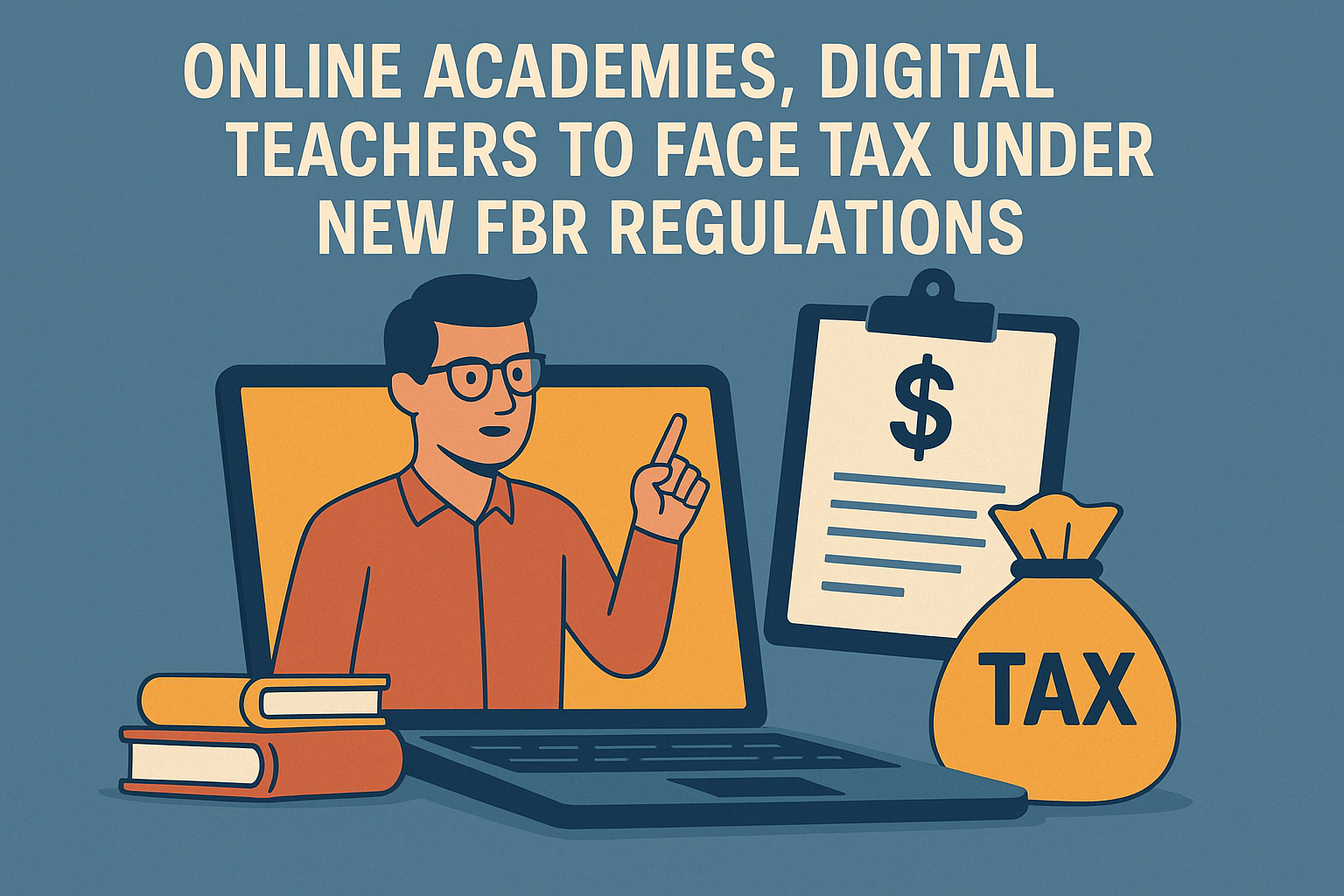
The Federal Board of Revenue (FBR) has rolled out a transformative tax plan targeting Pakistan’s rapidly growing digital education sector. This latest move will bring online academies, tutors, and e-learning platforms into the country’s formal tax net. While the plan aims to curb tax evasion and increase national revenue, it has sparked a wave of concern among digital educators and students alike.
This comprehensive article explores FBR new tax regulations for the online education sector, their implications, expert insights, legal considerations, and practical steps for compliance.
The COVID-19 pandemic accelerated Pakistan’s shift to e-learning. Platforms like Taleemabad, Coursera, and hundreds of local academies have flourished. According to the Pakistan Telecommunication Authority (PTA), internet penetration in the country stood at over 50% in 2024, providing a ripe environment for online education.
However, this surge in digital education also created a grey area: untaxed income for many educators and institutions operating without formal registration.
Tax Measures Introduced
Area | Measure |
|---|---|
Income Tracking | Online transactions and digital wallets (e.g., Jazz Cash, Easypaisa) to be monitored |
Mandatory Registration | Platforms and tutors earning over Rs. 600,000/year must register with FBR |
Withholding Tax | Payment gateways and platforms to deduct a fixed percentage as advance tax |
Audit Powers | Enhanced powers for FBR to audit digital income sources |
These measures were passed as part of the Finance Bill 2025 and will be effective starting July 1, 2025.
Many digital educators are unsure whether their activities fall under “commercial education services” or freelancing, which are taxed differently.
There is a rising concern that new taxation may discourage innovation and drive small-scale educators back into informality.
“We support tax compliance, but it should be simple and supportive—not punitive,” says Sara Nawaz, founder of a Lahore-based online academy.
Physical institutions and digital platforms are taxed differently. Many experts argue for a uniform taxation policy to ensure fairness across the sector.
To put things in perspective, here’s how other countries treat online education taxation:
Pakistan’s approach, though still evolving, seems to follow a hybrid model—aiming to balance revenue generation with sector support.
Use the FBR IRIS portal to obtain a National Tax Number (NTN) and file income tax returns.
Keep detailed records of:
Ensure your earnings are channeled through traceable sources such as bank accounts or registered mobile wallets.
Consider hiring a tax consultant or using platforms like Tax Dosti or Gowakeel for hassle-free compliance.
Despite the regulatory ambition, some areas remain vague:
These gaps could lead to legal ambiguities and non-compliance unless addressed with detailed SROs (Statutory Regulatory Orders).
“This is a bold but necessary move. Pakistan’s digital economy can’t be built on tax evasion.”
— Dr. Ayesha Ghani, Digital Economy Researcher, LUMS
“Regulations should support small creators instead of burdening them. Compliance costs should be scaled.”
— Zeeshan Ali, Tax Analyst, Karachi
Is YouTube income also taxable under this plan?
Yes, if it exceeds Rs. 600,000 per year and is educational in nature, it falls under taxable income.
Will international online platforms like Coursera be taxed in Pakistan?
If revenue is generated in Pakistan or from Pakistani students, local taxation laws may apply.
What if I’m only doing part-time teaching online?
As long as your income crosses the threshold, you must declare it—even part-time.
The FBR’s latest move to tax online education is a wake-up call for Pakistan’s digital educators. While this regulation introduces a much-needed structure to the booming e-learning space, its execution will determine whether it fosters growth or stifles innovation. Digital academies, tutors, and students must now adapt to this shift—by becoming compliant, transparent, and proactive.
No comments yet. Be the first to share your thoughts!
Have questions about our services or need personalized advice? Our team is ready to assist you.